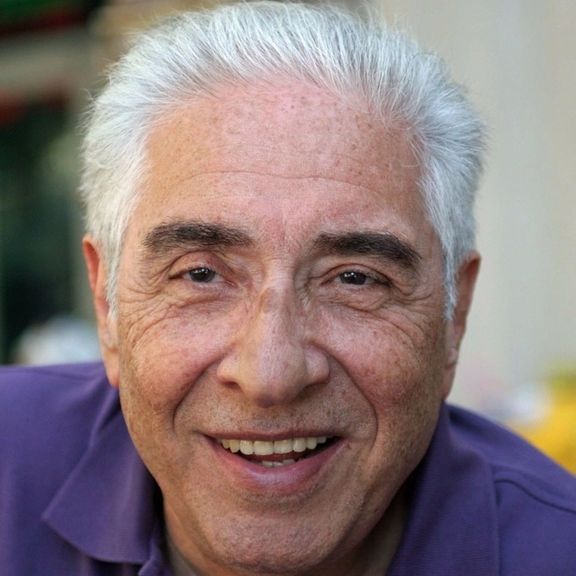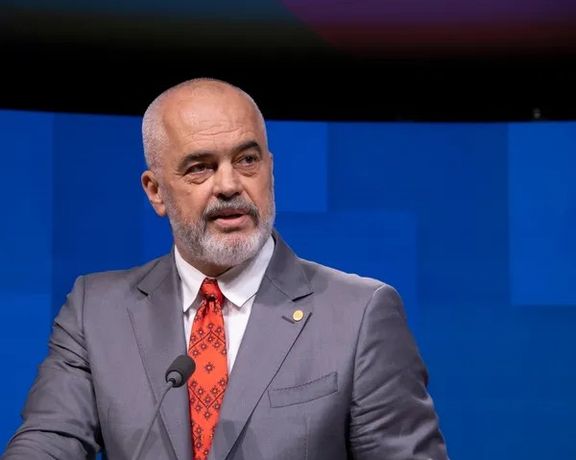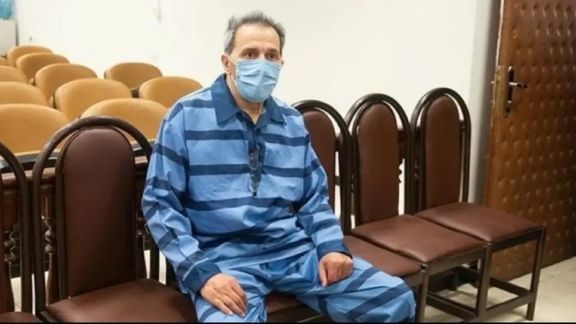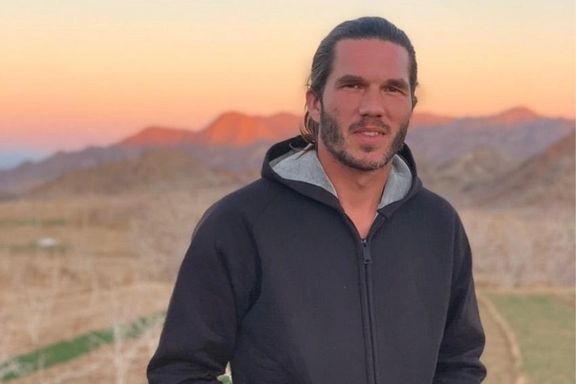US Repeats Call For Release Of Americans Held Hostage In Iran

The United States has called on Iran to release American citizens it holds hostage, saying it is continuing to approach negotiations to secure the release of four Iranian-Americans.

The United States has called on Iran to release American citizens it holds hostage, saying it is continuing to approach negotiations to secure the release of four Iranian-Americans.
State Department principal deputy spokesperson Vedant Patel said in a press briefing on Tuesday that the US “is seeking to secure the release of four wrongfully detained US citizens with the utmost urgency, and will continue to urge Iran to do the same.”
“Iran must allow Baquer (Bagher) and Siamak Namazi, Emad Sharghi (Shargi), and Morad Tahbaz to return home to their loved ones,” he said, declining to comment on Bagher’s medical issues over privacy concerns.
Bagher Namazi, 85, and his son, Siamak, are both jailed by the Islamic Republic, while the elder is in need of surgery “within weeks,” his family said. According to a statement from Perseus Strategies, which represents the family, he already had health problems when he was detained in 2016, and has developed further medical issues during his six years of imprisonment.
“According to multiple neurologists, Namazi must undergo surgery within weeks to clear life-threatening blockages in his left internal carotid artery,” the statement read, adding that “At the time of his arrest, Bagher was 79 years old and already suffering from numerous health conditions... The horrific prison conditions, denial of proper care, and overall trauma of the past six and a half years have been devastating for Bagher’s physical and mental health. He developed stress induced, adult-onset epilepsy, as well as severe depression.

Albania has severed its relations with the Islamic Republic and ordered all Iranian diplomats and embassy staff to leave the country within 24 hours.
"The government has decided with immediate effect to end diplomatic relations with the Islamic Republic of Iran," Albanian Prime Minister Edi Rama said, following an investigation into a cyberattack in July.
"This extreme response ... is fully proportionate to the gravity and risk of the cyberattack that threatened to paralyze public services, erase digital systems and hack into state records, steal government intranet electronic communication and stir chaos and insecurity in the country," he said.
In a statement by the White House National Security Council later in the day, the United States strongly condemned the cyberattack against its NATO ally Albania, saying it will “take further action to hold Iran accountable for actions that threaten the security of a US ally and set a troubling precedent for cyberspace.”
The attack happened around the time of a conference of the exiled Iranian Albania-based opposition group Mujahideen-e Khalq (MEK). In early August, cybersecurity firm Mandiant expressed “moderate confidence” the attackers were acting in support of Tehran’s efforts to disrupt the MEK conference, which had to be cancelled as well due to a terror threat.
In its report, the company said that several factors reveal that the attack was carried out by pro-Iran hackers, including the timing, the content of a social media channel used to claim responsibility, and similarities in software code used with malware long used to target Farsi and Arabic speakers.
The July 23-24 conference by the dissident group, titled The Free Iran World Summit, was canceled following warnings from local authorities of a possible terrorist threat. Several US lawmakers were also among the invitees.

White House says there are still gaps between Tehran and Washington regarding the revival of the 2015 nuclear deal, while Israeli sources say the deal will not be signed in the foreseeable future.
Coordinator for Strategic Communications at the National Security Council in the White House John Kirby said on Tuesday “Suffice to say there's still gaps, and we're just not there yet. That doesn't mean that we're less committed to a deal. It doesn't mean that we don't still want to see if we can get there; we do. But there's still quite a bit of work for our diplomats to do.”
Kirby added, "We're not going to talk about hypotheticals here with respect to Iran. The president has been clear: You will not allow Iran to achieve a nuclear weapons capability," he continued. "[Biden] believes strongly that the best way to do that is through diplomacy."
Kirby had sounded more optimistic last month, saying that Iran had made some concessions “that allowed us to get to where we are in the process … so that’s a positive step forward,” noting that the sides are “closer now than we were even just a couple of weeks ago.”
Also on Wednesday, The Times of Israel’s Hebrew sister site Zman Yisrael reported that based on the message that was conveyed to Prime Minister Yair Lapid in his recent conversations with US President Joe Biden, a new nuclear deal between Iran and world powers is off the table. The nuclear agreement “has been scrapped and will not be signed, at least in the foreseeable future.” the report said.

The Iranian government is promising perks including loans and free Internet to those participating in the Arbaeen pilgrimage to Karbala, Iraq, later this month.
Government spokesman Ali Bahadori-Jahromi said Tuesday that in the latest cabinet meeting President Ebrahim Raisi ordered all government organizations to provide maximum facilitation for the annual pilgrimage to Karbala where the main events of the annual ceremonies take place.
According to Bahadori-Jahromi, the government has improved the country’s infrastructures to facilitate pilgrimage to the religious city of Karbala including ten different airports for flights to Iraq as well as six dedicated border checkpoints, and the railway network. The first rail line from Tehran to Karbala has now been launched, he added.
The Civil Aviation Organisation has said but it has prepared 1,000 special flights to Iraq For the ceremonies.
Iran will probably end up spending hundreds of millions of dollars to sponsor a large pilgrimage because both domestically and in the region the clerical regime needs to show its ideology is influential.
In 2019, The New York Times quoted an influencial Iranian media boss, Hossein Sulaimani, as saying, “Arbaeen is a display of power for Iran and a showcase of unity among Shiites in the region."
The government will also be stationing a hot air balloon in the Iraqi border area to provide free mobile Internet access as well as free Wi-Fi to pilgrims and will also grant 50 million rial loans (around $160) to heads of households going on family pilgrimage and 30 million ($100) to individual pilgrims, he said, adding that the loan can be secured by online application and there will be no need for guarantees if the applicant has a cash subsidy account.

Around 5 million Iranian pilgrims are expected to travel to Iraq during the Arbaeen ceremonies which fall on September 18 this year. If such a large number end up going, the loan alone can cost the government upwards of $500 million amid an estimated 50-percent budget deficit.
Iranian authorities deploy all religious entities and media to encourage pilgrimage to Karbala. Government organisations and the state affiliated charities as well as municipalities and city councils often allocate considerable budgets to organize the Arbaeen Walk. Some officials and clerics say the Arbaeen gathering is one of the manifestations of the Shia “soft power’.
Many government organizations, municipalities, and city councils have separately allocated special budgets for the Arbaeen ceremonies in Iraq. The City Council of Mashhad, for instance, has approved a budget of 150 billion rials ($5 million) for services in the Iraqi holy city of Najaf and will dispatch 525 city cleaners and 354 bus drivers there.
“Arbaeen was a grassroots religious occasion…but the Islamic Republic turned it into a state ceremony. holding state religious events and using public money for that purpose. It means the government is putting its hand in people’s pockets without asking for permission,” Reza Veisi, Iran International analyst tweeted Monday.
The Arbaeen ceremony which marks the end of the 40-day mourning period following Ashura -- the religious ritual for the commemoration of the third Shia Muslim Imam, Hussain ibn Ali, the grandson of the Prophet Muhammad, killed in 680 AD – is the world's largest annual gathering.
Millions of Shia Muslims gather every year to mark Arbaeen in Karbala, Iraq, where the Imam is buried. Many walk long distances, even hundreds of kilometres, to the shrine of the Imam.
There are no reliable methods for tallying the number of visitors to Iraqi holy Shia sites during Arbaeen. In 2019, before the pandemic, an estimated 15 million people from various countries attended the ceremonies.

Human Rights group Amnesty International has condemned Iran for sentencing two LGBTQ activists to death on charges of "corruption on earth through the promotion of homosexuality."
On Tuesday, Amnesty called on the Islamic Republic “to immediately quash the convictions and death sentences,” and release Zahra Sedighi-Hamedani and Elham Choubdar.
“Iran's authorities must end persecution of LGBTI people now,” the group added. The verdict was issued by the Revolutionary Court of the city of Orumiyeh (Urmia), in West Azarbaijan province against Zahra Sedighi-Hamedani (31), known as Sareh, Elham Choubdar (24). Another woman, Soheila Ashrafi (52), was involved in the joint case, but her verdict has not been issued yet.
In July, Iran’s Revolutionary Guard said Sedighi-Hamadani has been slapped with new charges of "trafficking Iranian women" to Erbil, in Iraqi Kurdistan, referring to her as Zahra Mansouri Hamedani. She was first arrested on charges linked to an appearance in a BBC documentary on gay rights in Iraqi Kurdistan.
She was arrested while trying to cross the border and seek asylum in Turkey on October 27, 2021. She was held in solitary confinement for 53 days, during which, the Revolutionary Guard subjected her to intense interrogations, insulted her identity and appearance, threatened to execute her and to take away custody of her children.
On January 16, Sareh was accused of “spreading corruption on earth,” including through "promoting homosexuality”, “communication with anti-Islamic Republic media channels” and “promoting Christianity.”
Amnesty International appealed to Iran’s Chief Justice Gholamhossein Mohseni-Ejei on January 25, calling for her release.

The families of four Europeans held hostage by Iran accuse the European Union of ignoring their plight, asking the EU to negotiate their release in the nuclear talks.
In an open letter, signed by the sister of French citizen Benjamin Briere, the wife of Austrian Kamran Ghaderi, the wife of Swedish-Iranian doctor on death row Ahmadreza Djalali and the daughter of German citizen Jamshid Sharmahd and addressed to EU foreign policy chief Josep Borrell, they said their loved ones “wonder whether EU officials have forgotten them and how much longer they will have to endure this ordeal.”

“We, the families of French, Swedish, German, and Austrian citizens, who have been illegally detained by the Iranian regime, are outraged that the European Union seems to be ignoring these crimes,” they added.
The families also listed legal and other mistreatments their loved one have had to endure. “These European citizens have been subjected to torture, grossly unfair trials based on fabricated charges, without access to legal counsel or proper medical care. All of them are held hostage by a dictatorial regime that does not even abide by the minimum standard of international legal and human rights.”

Briere has been detained since May 2020 and sentenced to eight years in jail on spying charges while Ghaderi has been held for almost seven years since January 2016. Djalali has been in jail for six years and is awaiting execution in Iran on charges of spying for Israel leading to the killing of nuclear scientists.
Amnesty International has accused the Islamic Republic of taking Djalali "hostage" and using him as “a pawn in a cruel political game." Sharmahd was kidnapped in Dubai and transferred to Iran in late July 2020 as Iran accused him of bombing a mosque in Shiraz 2008 that killed 14 people and wounded more than 200 others.

Iran has been accused of wrongfully detaining at least a dozen foreign and dual nationals on trumped up charges, effectively as hostages to extract concessions from Western governments. Most of them are held on disputed spying charges.
According to the New York-based Center for Human Rights in Iran (CHRI), there are currently some 20 dual nationals and foreign nationals with US or European passports detained in Iran.
Borrell said on Monday he was “less confident” about efforts to restore the landmark nuclear deal, which was abandoned by former US president Donald Trump in 2018.
Earlier in the month, Iran reiterated its call for the release of its former officials imprisoned in Europe while Kylie Moore-Gilbert, an academic previously jailed in Iran for over two years, said Tehran is on the hunt for both Swedes and Belgians to exchange with them.
Foreign ministry’s spokesperson Nasser Kanaani said on Saturday that Assadollah Assadi, serving a 20-year sentence in Belgium over a terror attack in Paris, and former jailor Hamid Nouri, sentenced to life in prison in Sweden for his role in 1988 prison purges, should be released as their trials were illegal.
Assadi, 50, a former attaché at the Iranian embassy in Austria, was convicted of plotting to bomb a gathering of the exiled opposition group Mujahedin-e Khalq Organization (MEK) near Paris on June 30, 2018. Iran says Nouri’s detention is driven by “false allegations” made by the MEK.